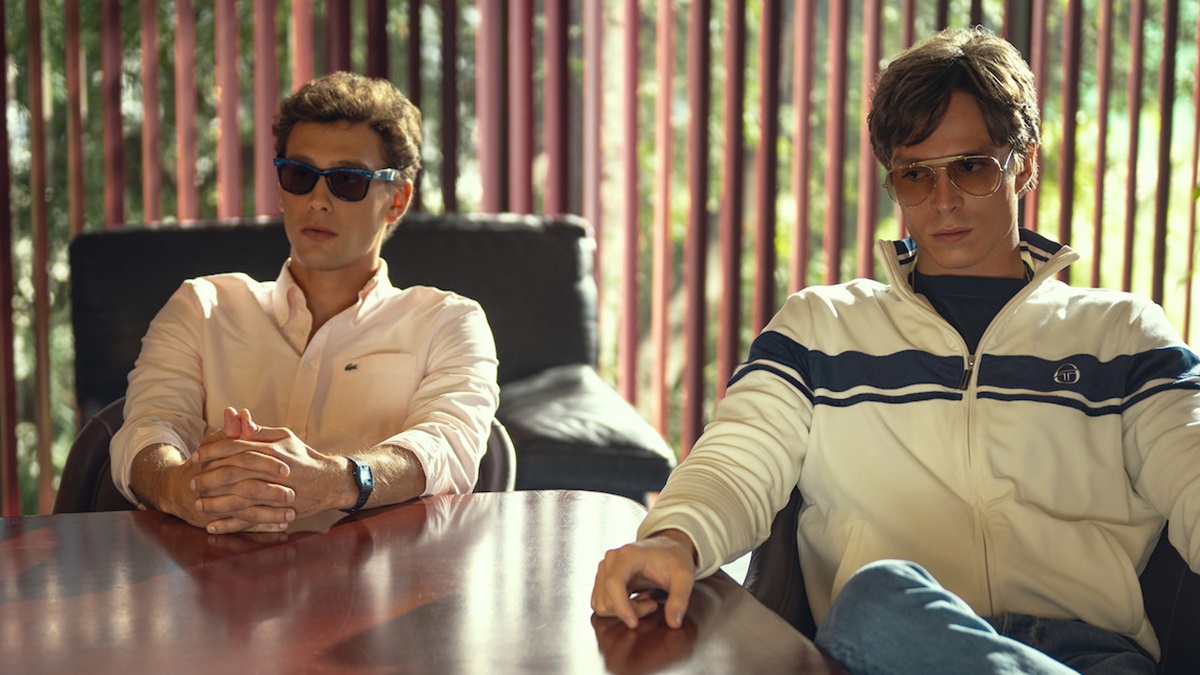Ryan Murphy’s Dominick Dunne excuse for ‘Monsters: The Lyle and Erik Menendez Story’ doesn’t add up

Monsters: The Lyle and Erik Menendez Story director Ryan Murphy has defended his controversial depiction of the Menéndez brothers, but his excuse that he was simply exploring journalist Dominick Dunne’s theories raises several problems.
The second season in the anthology Monsters series dramatizes the true crime case of Erik (Cooper Koch) and Lyle Menéndez (Nicholas Alexander Chavez). In 1996, the brothers were convicted of murdering their parents, José (Javier Bardem) and Kitty Menéndez (Chloë Sevigny), and sentenced to life in prison without the possibility of parole. However, some disagreed with the sentencing, as they believed the brothers’ claims that they committed the murder due to suffering physical, emotional, and mental abuse at the hands of their father. The abuse allegations led to the brothers each initially receiving a mistrial due to a deadlocked jury. The third trial in which they were sentenced, though, controversially excluded much evidence of the abuse.
Needless to say, the case is complex and requires delicacy if adapted to the screen. Unfortunately, many, including Erik Menéndez, have slammed Murphy’s depiction of the brothers. One aspect that drew the most ire was the show’s decision to imply the brothers had an incestuous relationship, even though there is no substantial evidence to support this. The nonfactual element felt especially callous since the brothers were alleged victims of incest. In defense, Murphy claimed he was exploring a journalist’s theory, but it has been called into question whether that journalist actually did posit such a theory.
Did Dominick Dunne really theorize about the Menéndez brother’s relationship?
After receiving backlash for Monsters: The Lyle and Erik Menendez Story, Murphy issued a statement defending the series. He argued that the show spent a sufficient amount of time exploring the brothers’ abuse allegations and suggested that Erik Menéndez had criticized the show without watching it. As for the incest controversy, he stated, “Dominick Dunne wrote several articles talking about that theory. We are presenting his point of view, just as we present Leslie Abramson’s point of view. And we had an obligation to show all of that, and we did.”
The major problem with this defense is that it has been difficult to find concrete proof that Dunne ever did present this theory. Dunne, who passed away in 2009, was an investigative journalist who wrote regularly for Vanity Fair beginning in the 1980s. Part of what inspired him to cover crime was the loss of his own daughter, Dominique Dunne, to homicide committed by her ex-boyfriend, John Thomas Sweeney. One of the most famous cases he covered was the Menéndez brothers’ trial. However, the outlet that he wrote for, Vanity Fair, has denied that he theorized the brothers had an incestuous relationship. The outlet wrote, “The brothers testified in their trial that they never had a sexual relationship with one another. Dunne, who covered the trial for this magazine, never expressed this theory in his coverage of the trial.”
In one of his most famous writings on the case, Nightmare on Elm Drive, Dunne makes no mention of the alleged relationship between the brothers but notes that sources accused the parents of incest and sexual abuse. During the trial, there was speculation of the brothers’ sexual orientation as a possible motive for murder, and given that they denied their sexual relationship in court, the theory may have been tossed around at the time. Still, since the series premiered, no one has come forward with articles or substantial evidence that this theory was explored in depth by reputable journalists.
Even if Dunne did express the theory, would Murphy really have an “obligation” to share it? Although Dunne’s work on the Menéndez case was well-respected, it wasn’t wholly without controversy. One of the sources for his article, who claimed to have overheard Lyle Menéndez jeering about having deceived “half the country” after his mistrial, later retracted her statement and alleged she had been paid and coached by Dunne to make it. Dunne admitted to giving his source money and regretting it but claimed it was unrelated to the case and simply because he wanted to help her out. Still, evidence to back up her statement was never found.
While the allegation of Dunne paying sources was never proven, it raises some concerns about potential bias against the brothers. Even if there were no questions of his credibility, his theory about the brothers would just be a theory. One can’t help but feel that Murphy should’ve been more obligated to share the truth or to share the theories that raise awareness for child abuse than to share the seemingly flimsy theory he perhaps thought was most sensational.
Have a tip we should know? [email protected]